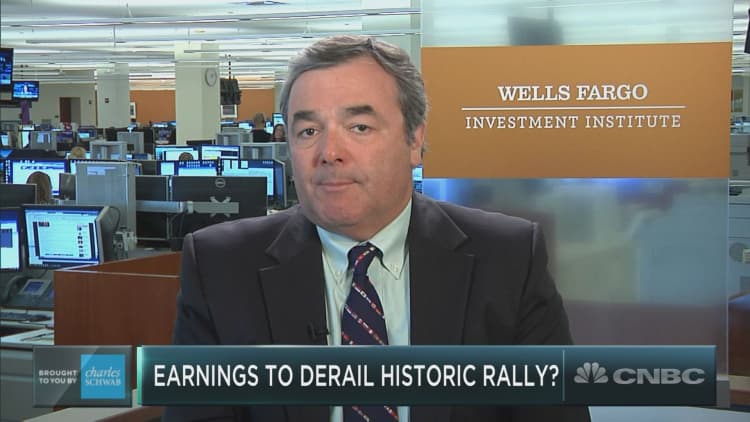
Ahead of a big week for technology earnings, the Wells Fargo Investment Institute's Scott Wren predicts the trade war blame game is going to intensify.
Since S&P 500 companies began reporting second quarter earnings, more than a third of them have cited tariffs or the U.S.-China trade war as a headwind to profits.
Wren predicts the number will start rising sharply in the coming days as more U.S. companies with direct exposure to Asia report numbers.
"The 800-pound gorilla in the room and the easiest target out there is trade uncertainty," the firm's senior global equity strategist told CNBC's "Trading Nation" on Friday. "You could think of a number of sectors where companies whose earnings are not great at least on a year-over-year comparison basis are going to use that scapegoat."
Wren singles out industrials and technology as groups that will blame trade war fallout for potential trouble. Yet, he's also including them among his favorites.
"We want to be in sectors that are still sensitive to a continuation of this expansion. So, if we were to get some kind of pullbacks, we're looking at that as an opportunity," he said. "It's just the nature of these kinds of earning seasons that companies try to hang their hat on something and try to find something to blame for poor results."
Despite his positive spin on quarterly numbers, Wren's S&P 500 year-end target suggests there is more downside than upside ahead. He has a 2,800 to 2,900 target, a 4% to 7% drop from the index's all-time high hit last Monday.
Wren cites the overall international economic picture as the downside risk.
"The market knows earnings are going to be lousy," Wren said. "The market is looking beyond this and it's looking at these macro issues and how are these trade headwinds going to affect overall global growth. They've been a real headwind."
CNBC's Nick Wells contributed to this report.






